What are Psychology Research Papers
Psychology papers are the type of research papers that present the results of original research conducted in the field of psychology. These papers contribute to the existing body of knowledge. They explore and address specific research questions, hypotheses, or problems related to human behavior, cognition, emotions, and mental processes.
Key features of psychology research papers include:
Empirical Research: Psychology papers are typically based on empirical research, meaning they involve the collection and analysis of data to answer research questions. This data can be gathered through experiments, surveys, observations, or other types of research methods.
Structure: These papers generally follow a standardized structure, including sections such as the research paper introduction, literature review, methodology, results, discussion, and conclusion.
Literature Review: A thorough review of existing literature in the chosen area of study is a very important component. The literature review involves summarizing and critiquing previous research to establish the context and rationale for the current study.
Methodology: The methodology section outlines the research design, participant selection, data collection methods, and statistical analyses employed in the study. It provides the necessary details for others to replicate the research.
Results: This section presents the findings of the study using statistical analyses, tables, and figures. It objectively reports the data collected and describes any patterns or relationships identified.
Discussion: The discussion interprets the results in the context of the research questions and the existing literature. It explores the implications of the findings, addresses limitations, and suggests areas for future research.
Conclusion: The conclusion summarizes the main points of the paper, reinforces the significance of the research, and may offer practical or theoretical implications.
How to Write a Psychology Research Paper?
Writing a psychology research paper involves several key steps. Here is a break-down of the writing process:
Step 1. Choose a Suitable Psychology Topic
Choosing a psychology research paper topic involves picking something that interests you and aligns with your studies. Look for specific topics that you find intriguing and explore emerging trends in the field.
Step 2. Craft the Title Page
Here's how you can structure the title page of your psychology research paper.
- Title: Centre your research paper title, it should be concise and to the point. Always capitalize the first letter of important words.
- Author Information: Below the title, list the names of all authors who contributed to the paper.
- Institutional Affiliation: Following the list of authors, provide the institutional affiliation(s) for each author.
- Author Note (Optional): If necessary, you can include an author note on the bottom half of the title page.
- Running Head: In the top left corner of the title page, include a running head (a shortened version of the title) in all capital letters.
- Page Number: In the top right corner of the title page, insert the page number, which should be preceded by the paper's title.
Step 3. Write the Psychology Paper Abstract
Here’s how you can write an abstract for your psychology research paper.
- Understand the Purpose: The abstract serves as a brief summary of your research paper, providing readers with an overview of your study's purpose.
- Structure Your Abstract: The abstract should be structured into distinct sections, including:
- Introduction: Briefly introduce the research topic and state the research question or objective.
- Methods: Describe the methods used to conduct the study, including participants, materials, procedures, and data analysis techniques.
- Results: Summarize the main findings of your study, including key statistical outcomes or significant observations.
- Conclusions: Provide a brief discussion of the implications of your findings and any conclusions drawn from the study.
Be concise highlight key aspects of your research, and always use past tense for methods and present tense for findings and conclusions. Use relevant keywords to aid understanding.
Step 4. Formulate the Outline
The next step is to outline your psychology research paper. Here is a standard research paper outline you can follow:
I. Introduction - Background and importance of the topic - Research question or hypothesis - Purpose of the study II. Literature Review - Overview of existing research and theories - Identification of gaps and contradictions - Theoretical framework III. Methodology - Research design - Participants - Variables and measures - Procedures IV. Results - Presentation of data - Statistical analysis - Interpretation of findings V. Discussion - Summary of findings - Comparison with previous research - Limitations and future directions VI. Conclusion - Summary of main points - Implications for practice or policy - Final thoughts VII. References - List of cited sources in APA style |
Step 5. Write the Introduction of Your Psychology Paper
Begin your introduction with an attention-grabbing hook, like a thought-provoking question or surprising statistic related to your topic. Then, provide background information about the importance and relevance of your research area within psychology, citing previous studies or real-world implications.
After that, clearly state your research problem or question and be specific in formulating your hypothesis. Outline the purpose and objectives of your study, explaining what you aim to achieve and the questions you seek to answer.
Finally, include your thesis statement, which clearly states the main argument or purpose of your paper.
If you want to learn how to write a thesis, you can visit our research paper thesis statement guide.
Step 6. Describe Your Methodology
In this section, you have to explain how you conducted your study in detail, including the participants, procedures, measures, and data analysis techniques. Here’s how to write the methods section of a psychology research paper:
- Participants: Describe participant demographics and recruitment methods briefly.
- Procedure: Outline the steps followed in data collection and any manipulations or interventions.
- Measures: Describe the tools or instruments used for data collection briefly, including their reliability and validity.
- Data Analysis: Summarize the statistical or analytical techniques used for data analysis.
- Ethical Considerations: Briefly mention any ethical considerations and approvals obtained for the study.
- Limitations: Acknowledge limitations or constraints that may have affected the study's validity or generalizability.
- Validity and Reliability: Discuss the validity and reliability of the study's measures and procedures briefly.
Step 7. Present Your Results
After the methodology, you will write the results section of your psychological study. Center the word “Results” without starting a new page.
- Provide a concise summary of the data collected and the results of any statistical analyses performed.
- Include results of descriptive and inferential statistical analyses
- Indicate whether the null hypothesis was rejected or retained
- Provide descriptive statistics (e.g., means, standard deviations) for your variables of interest
- If necessary, include summary tables or figures to display the results visually
- Ensure that tables and figures are clearly labeled and referenced in the text
- Save the interpretation of the results for the discussion section
Step 8. Write the Discussion Section
Here’s how to write the discussion section of a psychology research paper:
- Restate the main question or hypothesis guiding your study.
- Summarize the key findings of your research.
- Interpret the meaning of your results in relation to existing literature.
- Discuss the practical or theoretical implications of your findings.
- Acknowledge any limitations in your study and suggest ways to address them in the future.
- Compare your results with previous research, noting similarities or differences.
- Consider alternative explanations for your findings and discuss unexpected results.
- Propose directions for future research based on your study's outcomes.
- Summarize the main points discussed and highlight the significance of your research.
Step 9. Conclude Your Psychology Research Paper
In the conclusion of your paper, you should:
- Briefly summarize the main findings and their implications.
- Reflect on the study's methodology, acknowledging strengths and limitations.
- Suggest future research directions and reiterate the significance of your findings.
- End with a concise closing statement that reinforces the importance of your research within the field of psychology.
Step 10. Provide References
At the end of your psychology research paper, you will list the references of all the sources you used in your research paper. The reference page is always created separately, with the heading “References” at the top of the page in bold.
As mentioned before, you can opt for the APA style for formatting the references. Just make sure you consistently follow the same formatting style throughout the document.
How to Format a Psychology Research Paper?
Formatting a psychology research paper involves sticking to specific guidelines typically outlined by the chosen style manual, such as the American Psychological Association (APA) style.
Here's a general overview of how to format a psychology research paper in APA style:
- Page Setup:
- Use standard letter-size (8.5" x 11") paper with 1-inch margins on all sides.
- Use a clear and legible font such as Times New Roman or Arial, size 12pt.
- Double-space the entire paper, including the title page, abstract, main text, references, footnotes, and appendices.
- Title Page:
- Include a running head (a shortened version of your research paper title) and page number flush right in the header.
- Center the full title of your paper, your name, and your institutional affiliation (if applicable) in the upper half of the page.
- Abstract:
- Begin on a new page after the title page.
- Provide a brief summary of your research paper, typically between 150-250 words.
- Include keywords related to your study.
- Do not indent the abstract.
- Main Text:
- Organize your paper into sections: Introduction, Method, Results, Discussion, and any additional sections specific to your research (e.g., Literature Review).
- Begin each section with a bold and centered heading.
- Use subheadings to organize content within sections further if necessary.
- Use clear and concise language to describe your research methods, results, and interpretations.
- In-text Citations:
- Cite all sources used in the paper using the author-date citation system (e.g., Smith, 2019).
- Include the author's last name and the publication year for all in-text citations.
- When quoting directly, include the page number after the year (e.g., Smith, 2019, p. 25).
- Place citations immediately after the information is cited, before any punctuation.
- References:
- Create a separate page titled “References” at the end of your paper.
- List all sources cited in the paper in alphabetical order by the author's last name.
- Use hanging indentation for each reference (i.e., indent the second and subsequent lines of each reference).
- Tables and Figures:
- Number tables and figures sequentially throughout the text.
- Include a title for each table and figure positioned above the table or below the figure.
- Provide a brief explanation or caption for each table and figure.
Now that you know how to write down and format a stellar psychology research paper, the next section will introduce you to some great examples. This will enhance your understanding of the psychology research paper even more!
Psychology Research Paper Examples
Here are examples of psychology research papers for you.
For further exploration of qualitative research methods in psychology, you may find this qualitative research paper on psychology insightful.
If you’re looking for a paper related to the study of social behavioral science, you can check out this social psychology research paper.
Psychology Research Paper Topics
If you’re looking for inspiration in choosing your psychology research paper ideas, take a look at the topics we have picked:
- The Neurobiological Basis of Resilience in Individuals with Trauma Histories
- Interplay Between Genetic Factors and Environmental Stressors in Anxiety Disorders
- Impact of Early Childhood Adversity on Brain Development and Cognitive Functioning
- Dynamics of Interpersonal Relationships in Virtual Reality Environments
- Role of Implicit Biases in Healthcare Disparities and Patient Outcomes
- Influence of Socioeconomic Status on Neural Processing of Reward and Decision-Making
- Psychosocial Impact of Climate Change and Environmental Disasters on Vulnerable Communities
- Intersectionality of Identity and Mental Health among LGBTQ+ Individuals
- Efficacy of Mind-Body Interventions in Chronic Pain Management
- Developmental Trajectories of Moral Reasoning and Ethical Decision-Making Across the Lifespan
If you need help with more research ideas, visit our research paper topics blog to get inspired.
Wrapping up, psychology research papers are somewhat difficult to master, but with some guidance, you can write a compelling psychology research paper easily. Our blog covers everything from introducing the topic to discussing results and implications.
By following this format, researchers can present their work clearly and effectively.
If you need assistance with research paper writing, SharkPapers.com has got you covered. We provide the best paper writer service that offers research paper writing help at affordable rates. Our expert writers are up for any task, no matter what the difficulty!
Just reach out to our research paper writing service and achieve academic excellence now!


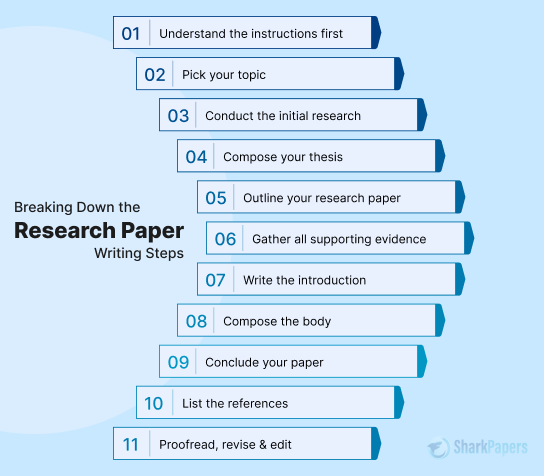






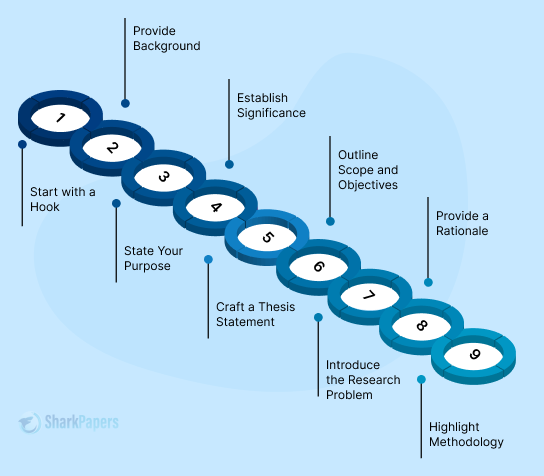


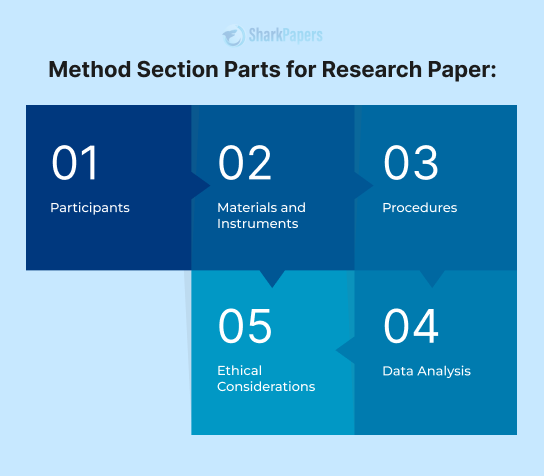


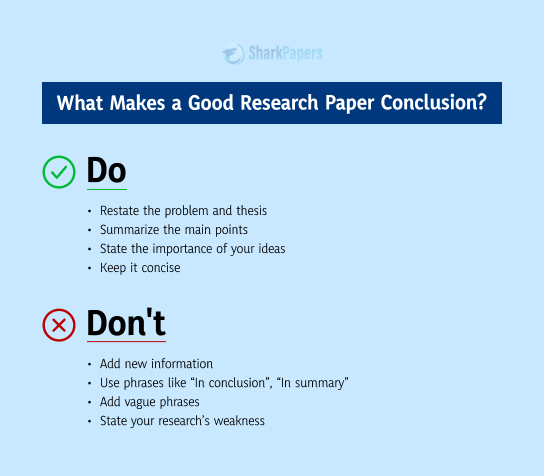
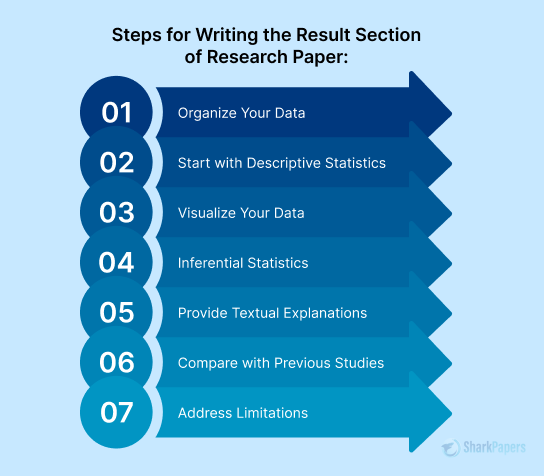
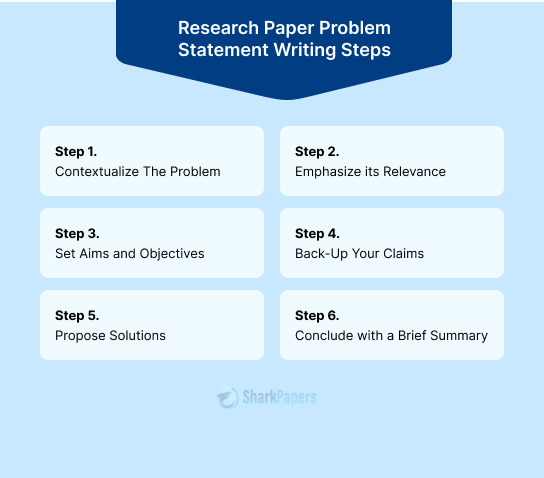
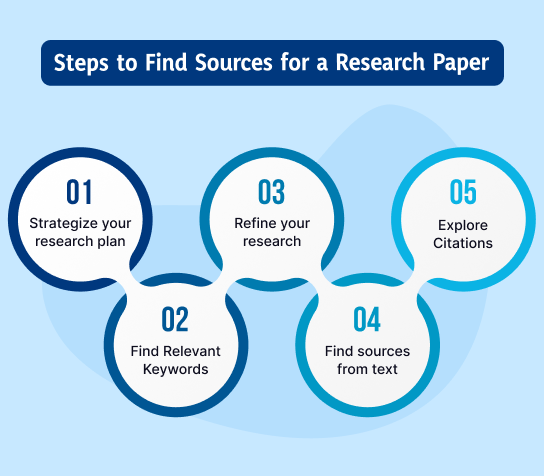
)
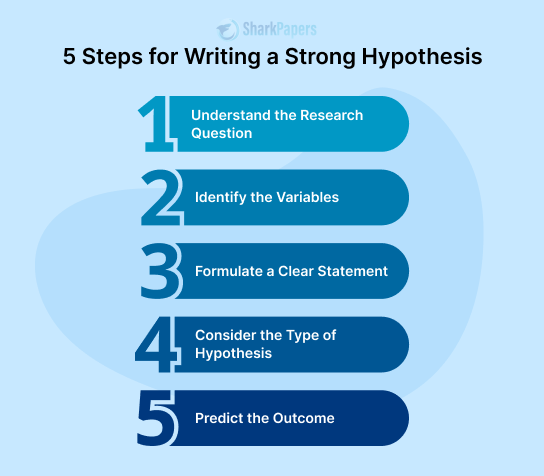
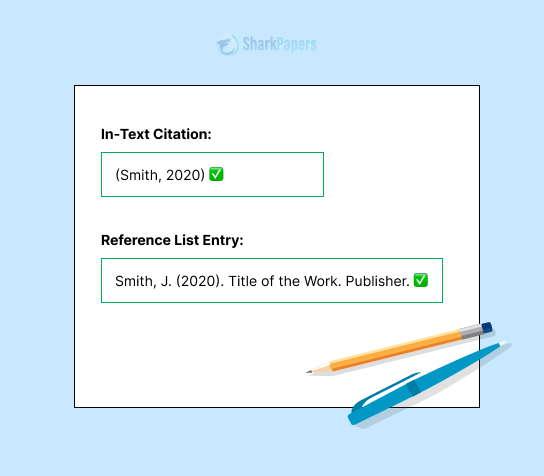

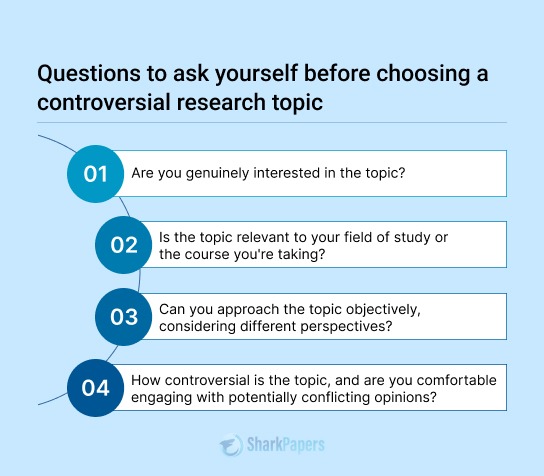






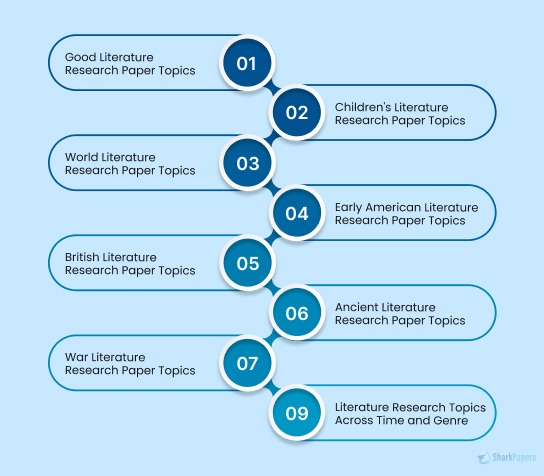
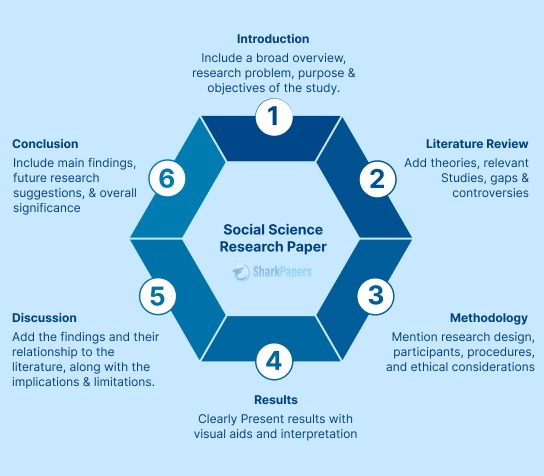
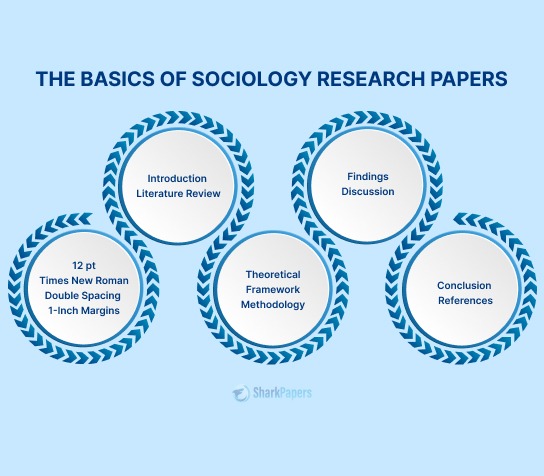
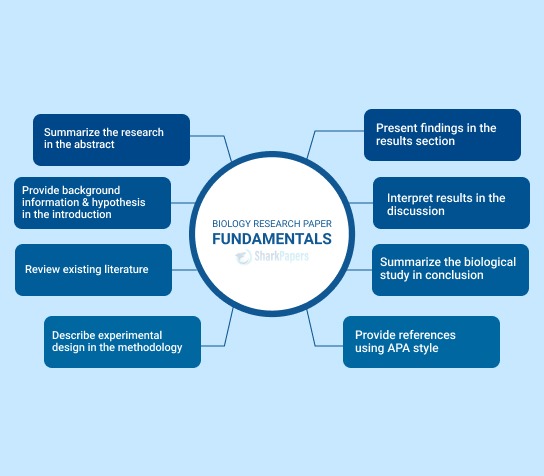
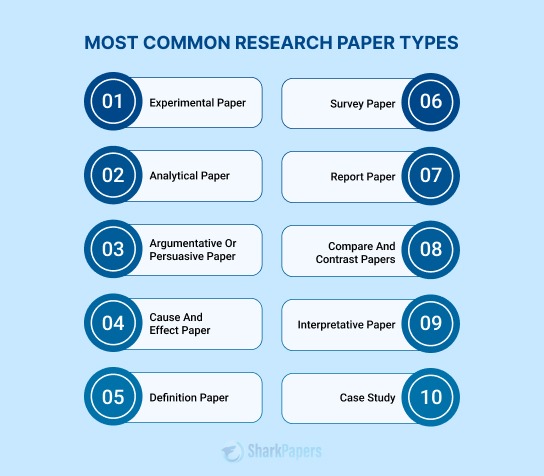

















-12114.jpg)














 Not seeing it? Check Promotions or Spam — inboxes get protective.
Not seeing it? Check Promotions or Spam — inboxes get protective.